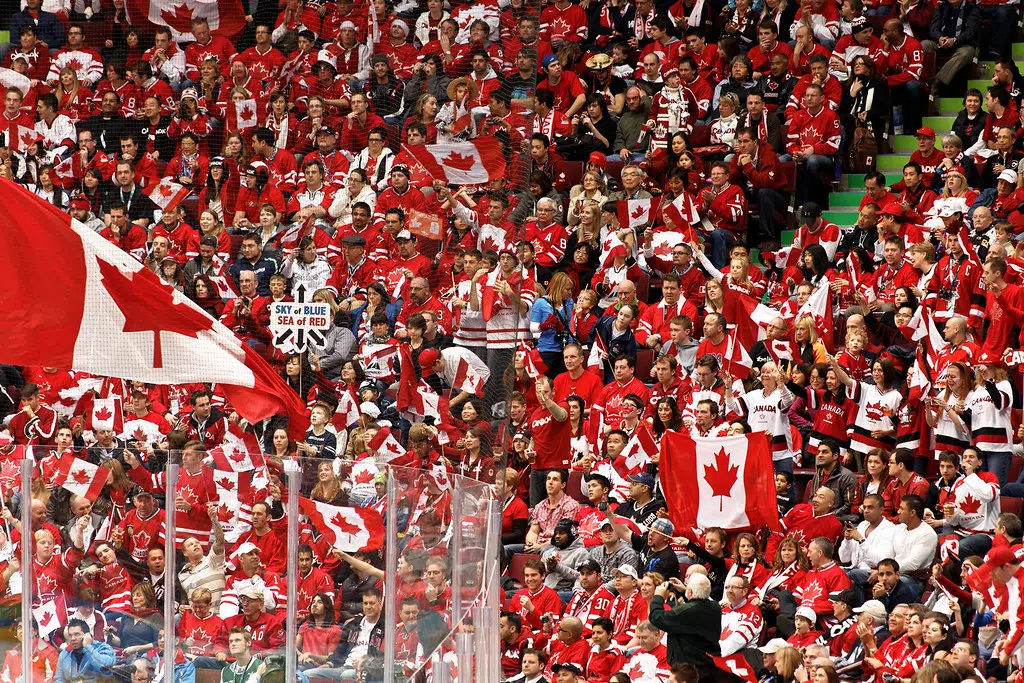Team Canada’s under-20 hockey team recently won the World Junior hockey championship. With the win, the country was sent into a frenzy as we reclaimed international hockey supremacy. For a tournament that has just 10 countries represented in it, it seems weird that we get so captivated by winning. The fact is, we have formed a cultural identity with the sport, and are downright defensive of it when the identity gets threatened.
A brief history
The first recognized game of hockey was played in 1875. The early versions of the game were based on rugby as it was primarily British immigrants who settled the country. This early version didn’t even allow the puck to be passed forward.
A few years later, an event in Montreal solidified hockey as a sport. “In 1883 at the Montreal Winter Fair, that was the first time there were sports journalists following all the games,” explains David Monteith, a Fanshawe professor who teaches a course on the cultural history of the game. “That was the first sort of display internationally that Canada had of hockey.”
As journalists disseminated the details of the game to a wide audience in a freshly-formed country, the people began to take hold of it. As technology grew, telegraph lines were then run to bars and taverns where the details of hockey games would then be broadcast for the public.
In 1917, the National Hockey League was formed between a handful of club hockey teams and thus began professional hockey.
Heart of .
Your 2020 World Junior Champions.
#WorldJuniors pic.twitter.com/EBwB4lLZdj
– Hockey Canada (@HockeyCanada) January 5, 2020
Other countries
There are just a handful of countries in the world that have strong international hockey programs. All of them have a similar geography to Canada and have a predominantly caucasian population. Canada, the United States, the four Scandanavian nations, Russia and the Czech Republic all enjoy hockey. The game has spread in recent years, with leagues popping up in Japan, China, Australia and throughout the Middle East.
Despite the game growing, nobody is quite as passionate about it as Canada. Clarke Singer has been the Head Coach of the Western Mustangs men’s hockey team for two decades. Before that, he coached professionally in Norway.
While the London Knights may be a safe bet to get at least 8,000 fans no matter how they are doing, it wasn’t the case for the Norweigan fans. “There was always a lot of pressure on us to win the game before our next home game,” says Singer. “If we play Thursday away then Sunday at home, if we won on Thursday we’d have twice as many fans on Sunday.”
As for international competition, hockey wasn’t necessarily the priority in Norway. “[Hockey] isn’t quite part of the fabric of the country. The soccer team? Oh yeah, at the World Cup or the European Cup it’s all over the country.”
Is hockey for everyone?
With hockey as enmeshed in the history of Canada as it is, we seem to create this narrative that in order to be a Canadian, one must enjoy hockey. It’s contradictory to the rest of the collective cultural identity where we are looked at as a cultural mosaic.
“The one aspect of melting pot that we probably have is hockey,” explains Monteith. “I think we’d probably like most Canadians to at least understand and appreciate hockey, if not be fans of it. And that’s probably a big problem because I don’t think everyone is going to do that.”
Nikhel Banerjee was aware of that when he decided to immigrate to Canada from India. When he went to experience the game first-hand, his experience was less than enjoyable.
“As the game progressed and the crowd started getting drunker, they started calling me names,” explains Banerjee, who has lived in three cities in Canada. “I would get a beer or popcorn and people would make remarks. I didn’t feel welcome.”
Banerjee is not alone in his feelings, which is why he looks to other sports. “I have friends [who are also immigrants] who share similar experiences. They don’t side with the sport of hockey. They are more drawn to sports like the NFL or basketball where you see a different colour.”
Insecurity about our game
Despite the fact that few countries can compete internationally, Canada is passionate when represented in international competition. The World Junior tournament has 10 countries in it. Contrasted with the World Cup of soccer (which Canada has not competed in since the 80s) where there are 64 nations, it seems insignificant on the global scale.
Our passion may be as part of an inferiority complex. “A lot of that insecurity comes from having a big brother to the south of us that we always feel like we’re playing second fiddle to,” says Monteith. “Hockey is the thing that we’re good at. It’s the thing that we gave to the world. And it’s one of the few things that Canadians can point to in our history and say ‘that is ours, and that is good.’”
Coming from India, Banerjee understands the passion for a selective sport. “Cricket is a religion. India will be playing Zimbabwe and will beat them by 200, 300 points and it’s a very one-sided game but everyone watches it.”
In recent years, basketball, tennis, and soccer have made waves in Canadian sports. The Toronto Raptors posted record profit after bringing the NBA Championship to Canada for the first time. But when the Toronto Maple Leafs are continually turning record profits despite not having won a championship in over 50 years, that’s indicative of where Canadians’ true passion lies.










